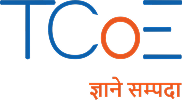Raman Spectroscopy- IndiRAM Edu Course
Discover the fascinating world of Raman Spectroscopy- IndiRAM Edu Course, a powerful analytical technique that reveals the molecular secrets of materials through light scattering. This course introduces you to the fundamentals of vibrational spectroscopy, instrumentation, and data interpretation used to identify chemical compositions and molecular structures. From nanomaterials to biological samples, you’ll explore how Raman spectroscopy plays a crucial role in scientific research, material science, and pharmaceutical analysis. Perfect for learners passionate about advanced chemistry, physics, and material characterization, this course turns light into a tool for discovery!
- 36 Hours (2 hours/day x 6 days/week x 6 weeks) OR at your own pace
- Hindi, English
- Learn & Get Certified
- Basic & Intermediate
- Hands-On Training


Online Course Fees
Offline Course Fees
About this course
Raman Spectroscopy- IndiRAM Edu Course introduces the principles and applications of Raman spectroscopy as a powerful tool for material characterization. The course covers the fundamentals of light–matter interaction, instrumentation, spectral analysis, and interpretation techniques. Students will explore practical applications in chemistry, physics, biology, and material science, gaining both theoretical knowledge and hands-on exposure to Raman spectroscopy systems.
Raman Spectroscopy is a non-destructive technique used in various fields, including chemistry, material science, biology, and pharmaceuticals. Its ability to identify molecular compositions, structures, and interactions at the atomic level makes it invaluable in research and industry.
- Online Course Fees: ₹4000, ₹3000 (incl. GST) (Excluding tools & equipment cost)
- Offline Course Fees: ₹8500, ₹7000 (incl. GST) (Excluding tools & equipment cost)
- Certification: TCoE
- Duration: 36 Hours (2 hours/day x 6 days/week x 6 weeks) OR at your own pace
What you'll learn
After this course you will learn:
- Fundamentals of Raman Effect: Understand how light interacts with matter and the principles behind Raman scattering.
- Instrumentation and Components: Learn about key parts of a Raman spectrometer, including lasers, optics, detectors, and sample handling systems.
- Raman Spectra Interpretation: Develop the ability to read and analyze Raman spectra to identify molecular vibrations and structures.
- Applications in Material Science: Explore how Raman spectroscopy is used to study crystals, polymers, nanomaterials, and semiconductors.
- Chemical and Biological Analysis: Discover its use in detecting chemical compounds, pharmaceuticals, and biological tissues with precision.
- Advanced Raman Techniques: Get introduced to specialized methods such as Resonance Raman, Surface-Enhanced Raman (SERS), and Confocal Raman Microscopy.
- Data Acquisition and Processing: Learn how to collect, process, and interpret Raman data using modern software tools.
- Real-World Case Studies: Examine practical examples and industrial applications to understand how Raman spectroscopy supports innovation and research.
Course Content
Why take this course?
This course introduces you to a powerful, non-destructive analytical technique used to identify materials and study their molecular and structural properties. You will learn the principles of Raman spectroscopy, instrumentation, data interpretation, and real-world applications in materials science, pharmaceuticals, chemicals, semiconductors, and metallurgy. With increasing demand for advanced characterization and quality control, skilled professionals in spectroscopy are highly valued. This course equips you with practical analytical skills and a strong foundation for careers in research, industry, and advanced scientific applications.
How to use online TCoE platform?
Tools and Equipment required
National Skill Development Mission
Module-1: Introduction to Raman Spectroscopy
- This module provides an overview of Raman Spectroscopy, a powerful analytical technique used to study molecular vibrations and material composition.
- Learners will explore the fundamental principles, historical development, and key applications of Raman Spectroscopy in research, industry, and quality control.
- The module sets the foundation for understanding how Raman signals are generated, detected, and interpreted in various scientific and industrial contexts.
Module-2: Raman Spectroscopy Instrumentation
- This module introduces learners to the key components and setup of a Raman Spectroscopy system.
- Topics include lasers, spectrometers, optical elements, detectors, and sample handling techniques.
- Learners will understand how each component contributes to acquiring accurate and high-quality Raman spectra, enabling effective analysis of materials in research and industrial applications.
Module-3: Sample preparation and data handling
- This module covers essential techniques for preparing samples for Raman Spectroscopy to ensure accurate and reproducible results.
- Learners will explore methods for handling solids, liquids, and powders, as well as strategies to minimize interference and enhance signal quality.
- Additionally, the module introduces best practices for data acquisition, processing, and interpretation, enabling effective analysis and reliable reporting of Raman spectra.
Module-4: Surface Enhanced Raman Spectroscopy
- This module introduces Surface Enhanced Raman Spectroscopy (SERS), an advanced technique that dramatically amplifies Raman signals using nanostructured surfaces.
- Learners will explore the principles behind signal enhancement, types of SERS substrates, and practical applications in fields such as chemical sensing, biosensing, and materials science.
- The module equips learners with the knowledge to understand and apply SERS for sensitive and precise molecular detection.
Module-5: Applications of Raman Spectroscopy
- This module explores the diverse applications of Raman Spectroscopy across science, industry, and research.
- Learners will discover how Raman techniques are used in material identification, chemical analysis, pharmaceuticals, nanotechnology, and environmental monitoring.
- Real-world case studies will illustrate how Raman Spectroscopy provides precise, non-destructive insights into molecular composition and structure, highlighting its value as a versatile analytical tool.
ENROLL TODAY & GET 30% OFF ON ALL COURSES
Your Future Can’t Wait, Enroll Now and Save 30% On All Courses.
See what our students have to say
With over a decade of experience, our mission is to produce future-ready skilled resources.
Surface-Enhanced Raman Spectroscopy (SERS)
Surface-Enhanced Raman Spectroscopy (SERS) is an advanced and fascinating extension of traditional Raman spectroscopy that dramatically amplifies weak Raman signals using nanostructured metallic surfaces, typically silver or gold. This enhancement occurs due to the interaction between light and the localized surface plasmons on the metal surface, allowing detection of even single molecules in some cases.
Job Opportunities
Here are some interesting job opportunities after completing the Raman Spectroscopy course:
Spectroscopy Analyst / Scientist
– Work in research or industrial labs analyzing materials, chemicals, or biological samples using Raman and other spectroscopic techniques.Material Characterization Specialist
– Use Raman spectroscopy to study and identify materials such as polymers, nanomaterials, semiconductors, and composites.Pharmaceutical Quality Analyst
– Apply Raman methods to test drug purity, molecular structure, and formulation consistency in pharma R&D and quality control.Research Associate in Chemical or Physical Sciences
– Conduct advanced research in fields like nanotechnology, catalysis, or molecular chemistry using Raman spectroscopy as a core analytical tool.Forensic Science Expert
– Utilize Raman spectroscopy for non-destructive identification of substances in forensic labs, such as drugs, pigments, or trace evidence.Environmental Analyst
– Employ Raman-based sensors and systems to monitor pollutants, water quality, and atmospheric particles.Biomedical Research Assistant
– Work in medical and biological labs where Raman spectroscopy is used for cell imaging, disease diagnostics, and tissue analysis.- Optical Instrumentation Engineer
– Design, test, and maintain spectroscopic equipment and optical systems for research or industrial applications.
Frequently asked questions
What is Raman Spectroscopy and why is it important?
Raman Spectroscopy is a non-destructive analytical technique that uses light scattering to identify molecules and study their vibrational and structural properties. It’s crucial in fields like chemistry, materials science, biology, and pharmaceuticals for understanding the composition of substances.
Do I need a background in physics or chemistry to learn this course?
A basic understanding of science and molecular concepts helps, but the course is designed to explain everything from the ground up — making it suitable for students, researchers, and professionals alike.
What practical skills will I gain from this course?
You’ll learn to operate Raman instruments, prepare and analyze samples, interpret Raman spectra, and apply the technique to real-world materials and research problems.
What kind of instruments or software will I learn about?
The course covers Raman spectrometers, laser sources, detectors, and data analysis software used for spectral processing and molecular identification.
What are some common applications of Raman Spectroscopy?
Raman spectroscopy is widely used in material identification, pharmaceutical testing, forensics, environmental studies, and even art conservation to analyze pigments and compounds non-destructively.

